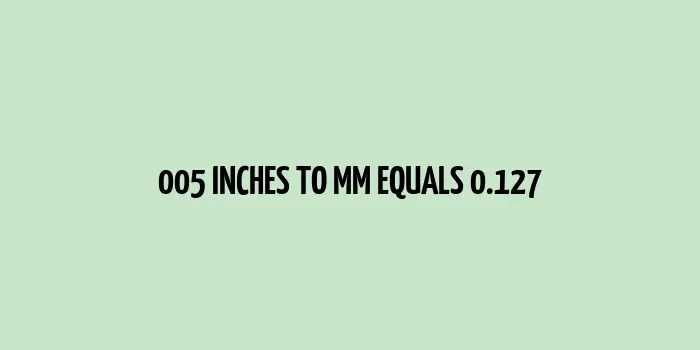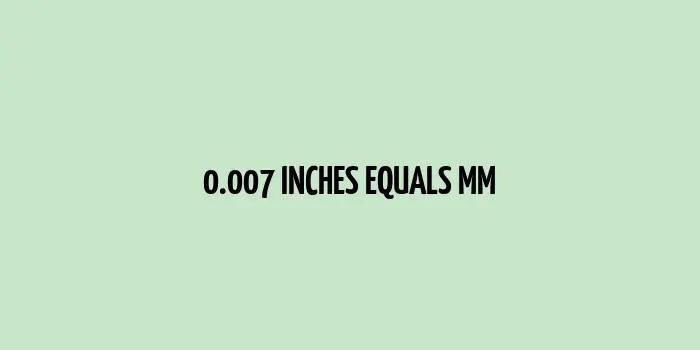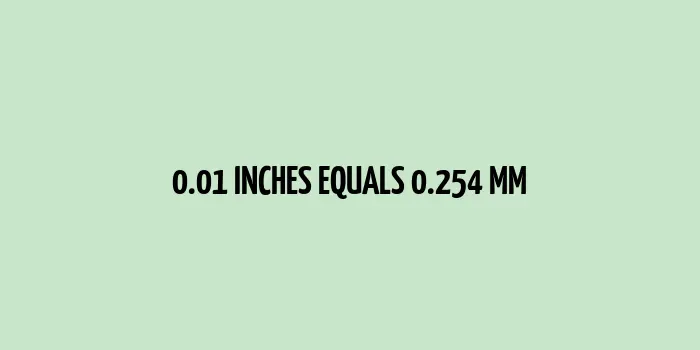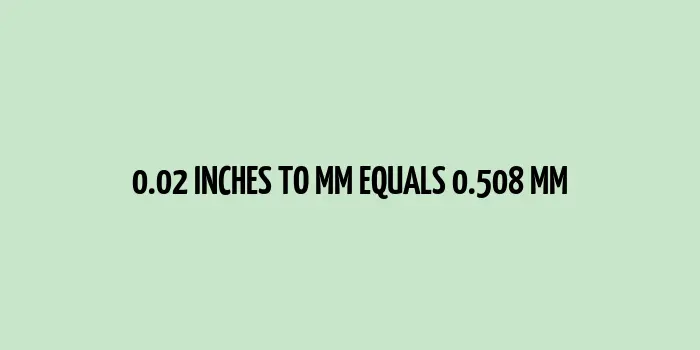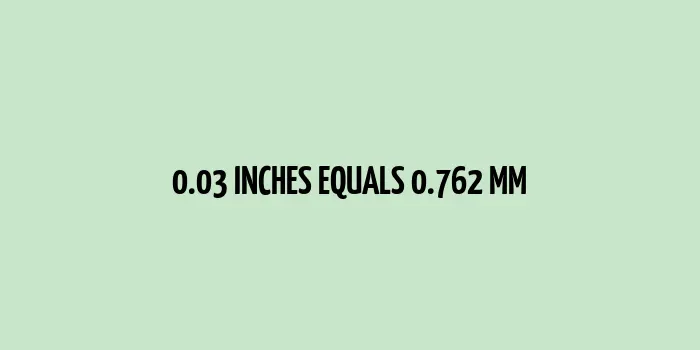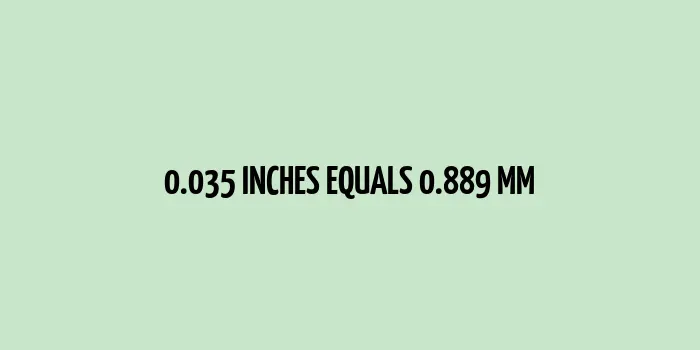4 inches to mm (Inches to Millimeters)
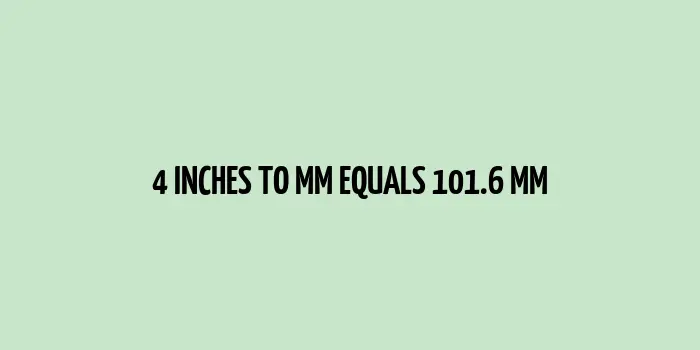
Here is how to easily convert 4 inches to mm
4 inches is equal to 101.6 millimeters (mm). Converting inches to millimeters is crucial for various applications, especially in industries like manufacturing, construction, and technology. Accurate conversions ensure that measurements are precise and projects run smoothly.
When you convert 4 inches to millimeters, understanding the background of this conversion can provide better insight. The conversion factor between inches and millimeters is a simple yet indispensable piece of information: 1 inch equals 25.4 millimeters. The formula used for conversions is thus straightforward: multiply the number of inches by 25.4.
Example Calculation:
4 inches x 25.4 = 101.6 millimeters
Now let's dive deeper into the significance of this conversion and ways in which it can be applied in various contexts.
The Importance of Precise Measurement
In many fields like engineering and carpentry, accuracy in measurement is crucial. A one millimeter error can lead to issues in fitting and alignment, which may result in costly reworks. According to a survey, 98% of manufacturing errors are due to incorrect measurements. This highlights how critical precision is in these industries.
Practical Applications of 4 Inches to MM Conversion
Understanding and applying the conversion of 4 inches to mm is beneficial not only for professionals but also for everyday tasks:
- DIY Home Projects: Many home improvement projects require precise measurements. Cutting a piece of wood to 101.6 mm rather than approximately 4 inches can make a significant difference in the final fit and finish.
- Textile Industry: Fabrics are often measured in millimeters to ensure detailed and precise cutting, which is critical for the final product's quality.
- Electronics: Circuit boards and other small components need to be designed with millimeter precision to ensure functionality and reliability.
Statistical Insight
A case study published by the Engineering Society found that projects adhering strictly to metric measurements reduced material waste by 20% compared to those using standard measurements. This demonstrates the practical advantages of adopting precise measurement systems like the metric system.
Analogy: Millimeters as Fine-Tuning in Music
Consider millimeter precision as the fine-tuning of a musical instrument. Just as a slight adjustment can make a world of difference in the quality of sound, a small measurement tweak can significantly impact the outcome of a project.
External Resources
For a deeper dive into the benefits of accurate measurements, you may refer to this insightful resource on Why Precision Matters in Engineering.
Frequently Asked Questions
How do you convert 4 inches to mm?
To convert 4 inches to mm, multiply 4 by 25.4. So, 4 inches x 25.4 = 101.6 mm.
Why is knowing the conversion from inches to millimeters important?
Precision is vital in various industries. Millimeters offer a higher degree of accuracy than inches, reducing errors and improving fitting.
Is 4 inches equal to 101.6 mm?
Yes, 4 inches is exactly 101.6 millimeters.
What tools can help with such conversions?
Digital calipers and conversion charts can simplify the process by providing accurate readings in both inches and millimeters.
By understanding and applying the conversion of 4 inches to mm, you can achieve greater accuracy in both professional and DIY projects, leading to better outcomes and enhanced quality. Accurate measurement is not just a technical requirement but a fundamental aspect of efficient and successful project execution.
